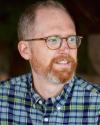Spring 2020
Meeting:
TTh 11:30am - 1:20pm / SAV 141
SLN:
13917
Section Type:
Lecture
Instructor:
ADD CODE FROM INSTRUCTOR PD 3
Credits:
5.0
Status:
Active
Last updated:
August 23, 2025 - 4:01 am
